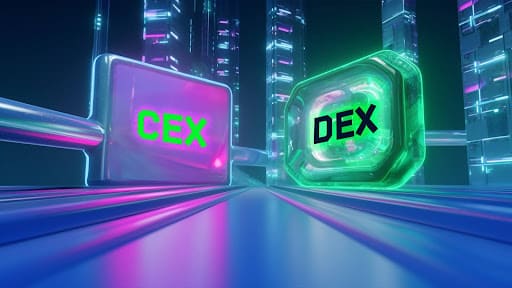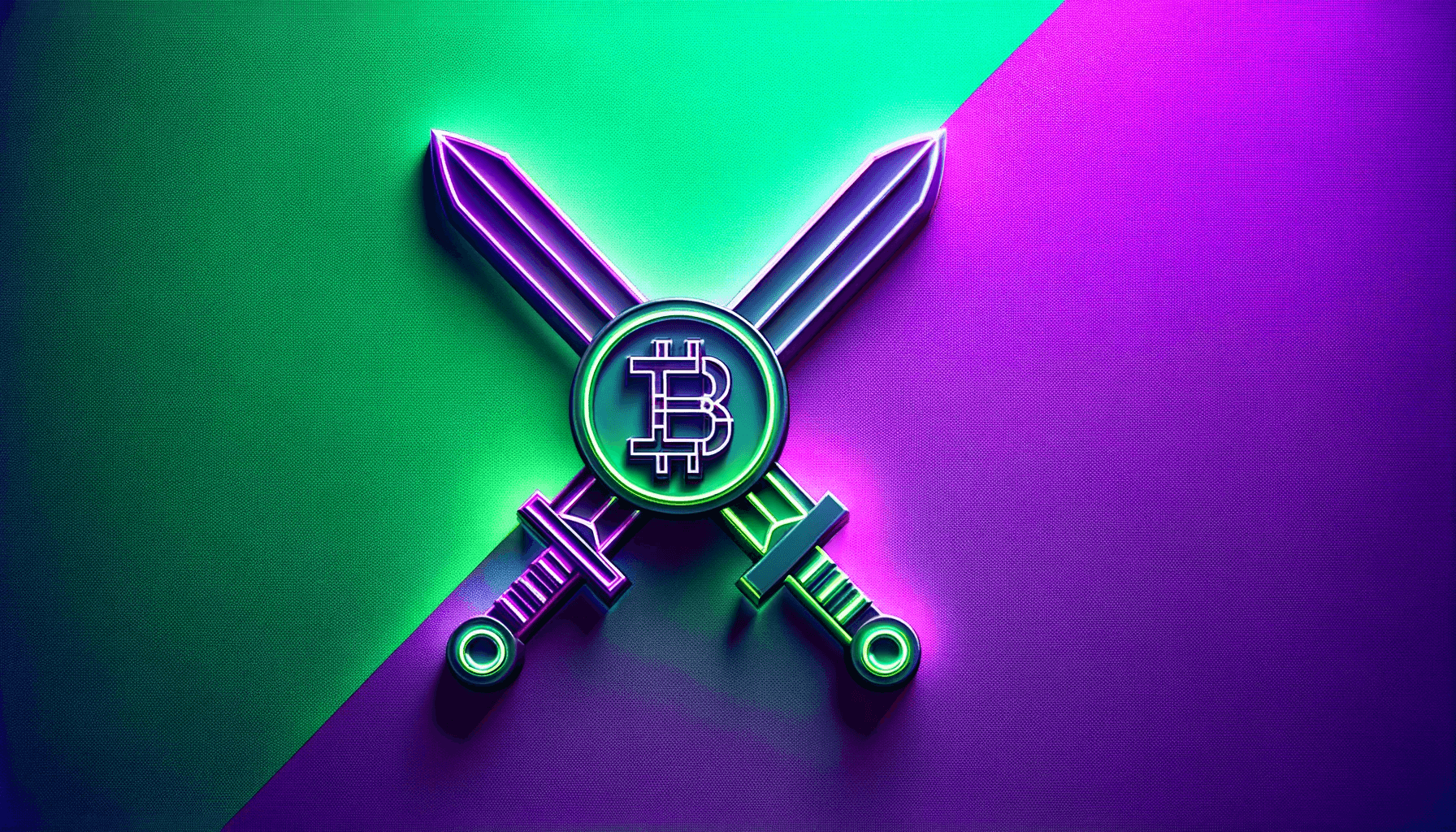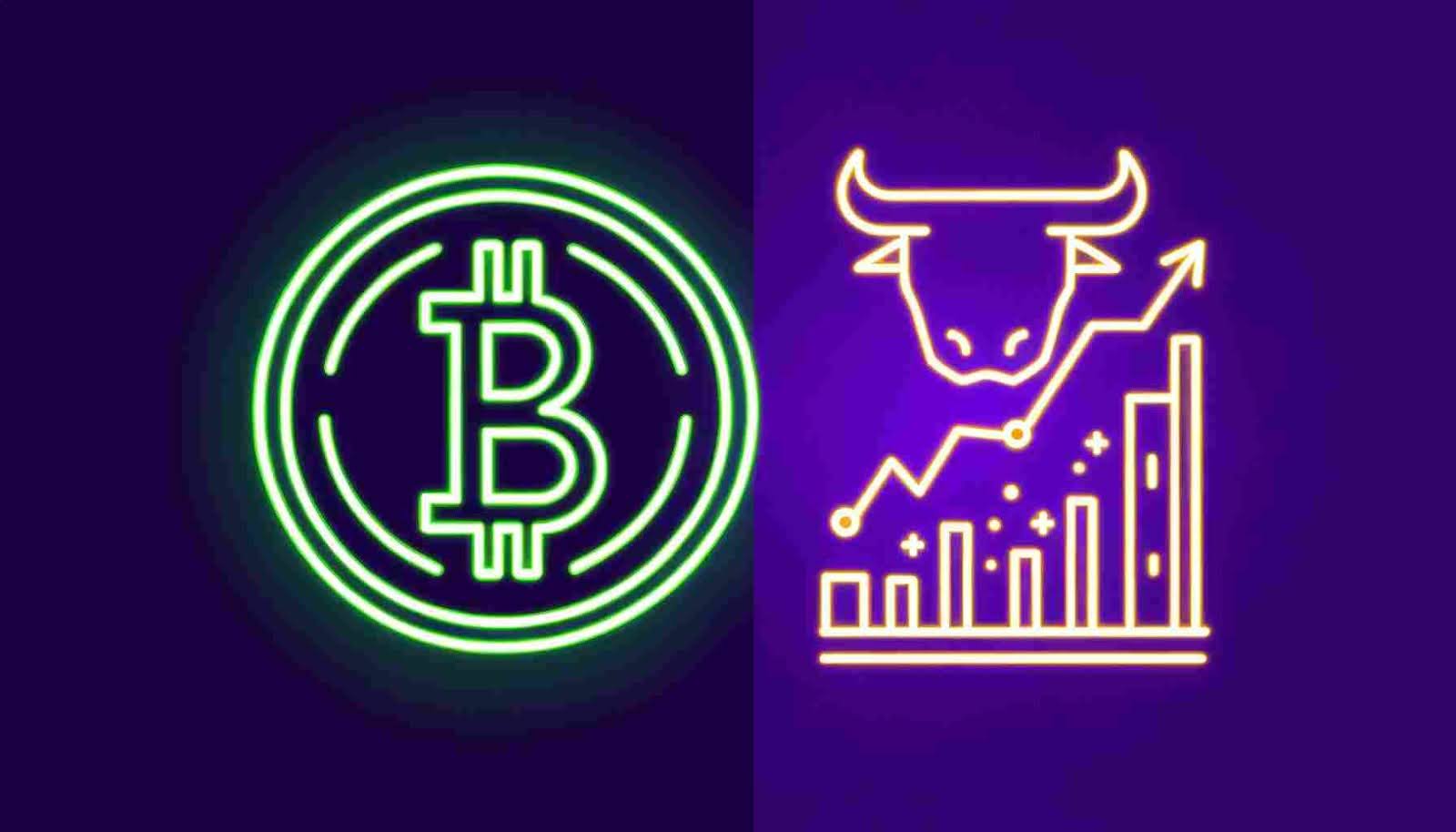
Since cryptocurrencies are not allowed to be listed on stock exchange markets, crypto users have to make do with the various exchanges that exist in the cryptocurrency ecosystem. The exchanges facilitate the purchase of crypto assets using fiat and token swaps from one network to the other.
Exchanges are either ‘centralised’ or ‘decentralised’, depending on their mode of operation, whether it requires an intermediary or not. Both have several benefits and drawbacks, so why don't we look at their characteristics.
What Is a Centralised Exchange?
Centralised exchanges are platforms that offer token swap and transfer services through a central entity. Essentially, they are owned by a single person or a company, who acts as a middleman between two users or between a user and a blockchain. Centralised exchanges use order books to match users and their prices, unlike decentralised exchanges where market forces of demand and supply determine token value.
How Do Centralised Exchanges Work?
To start trading with a centralised exchange, users create an account with a username and password, but the platform stores the private key to the wallet. So the user is simply 'borrowing' the platform since the platform can withdraw access to the assets at any time. Basically, centralised exchanges function similarly to banks, giving crypto users a chance to convert their fiat currency into tokens and vice versa.
The users deposit funds into their centralised exchange accounts and trade with the balance. The platform matches traders with other users or blockchains for transactions with its order book system.
The order book contains all buy and sell orders, and it facilitates seamless pairing of buyer and seller on the platform for a transaction fee. If a user sets a sell order for a particular token at $1500, the order book matches it with a buy order of that token for $1500.
What is a Decentralised Exchange?
Decentralised exchanges are unlike their centralised counterparts because they have no intermediaries between traders on the platform. They actualize the vision of cryptocurrency to enable global decentralisation so that everyone can connect with one another using blockchains all over the world.
Instead of maintaining an order book that matches individual users' prices, decentralised exchanges utilise smart contracts to connect users to one another on the blockchain and automate their transactions. A smart contract is a program written to complete a transaction as soon as the terms stated in the software code are met.
Since they are not owned by any entity, DEXs can exist on blockchains, which increases their accessibility to any user connected to the Internet. While decentralisation is the current rave, there are many risks associated with decentralised exchanges.
Features of a Centralised Exchange
Here are some attributes common to all CEXs in the cryptocurrency market.
-
Custodial Wallets
Once you open an account with a centralised exchange, you have partial access to your profile via username and password. The wallets have private keys generated for them, but the exchange keeps these away from the users, maintaining its own link to the account.
The significant demerit here is that the central entity governing the exchange can decide to restrict a user's access to their account using the private key. The login details are not enough to maintain control over the wallets, so such exchanges still have custody over user wallets and the assets they contain.
-
KYC
All centralised exchanges perform a Know-Your-Customer verification before approving a wallet for any user. The verification entails submitting and reviewing personal documents like passports, identity documents, etc., to verify the user's identity. This ensures that only verified individuals are allowed on the platform, and the exchange can always trace their identity if any suspicious activity is suspected.
The KYC verification also cancels out anonymity, another of cryptocurrency's hallmarks. Like a bank, the exchange knows each wallet and its owner, removing any form of privacy.
-
Single, Central Entity
The centralised exchanges have one governing body, which could be a company board or a team of professionals. The central entity is responsible for the platform's operations, from token swaps to loans and liquidity.
With a single entity comes faster decision-making, which has positive effects on the growth of any platform. The small team will quickly reach a consensus on a decision and execute it to take effect as soon as possible. This is why centralised exchanges have the broadest range of operations, supporting spot and futures trading while providing adequate user support.
However, this also means that an issue originating from the central entity will have effects on a larger scale. Because the platform's every operation is decided by a small entity, any error will have a widespread impact on every user's accounts on the exchange. Mismanagement of funds is another possibility, and since you store your funds in the wallets provided, the funds could be compromised.
Features of a Decentralised Exchange
-
Accessibility and Anonymity
Decentralised exchanges exist on blockchains, which are defined by their confidentiality and accessibility to users globally. Since anyone on the Internet can use a blockchain, DEXs are available for anyone to trade with. Also, users have complete access to their wallets and do not have to submit any personal information to the blockchain before they open their wallets. This gives the required anonymity and privacy, although the blockchain stores records of every transaction.
-
Diverse Tokens
Centralised exchanges have to comply with local regulations and might feature a limited list of tokens for trading. On the other hand, decentralised exchanges list any token launched on a blockchain, allowing users to benefit from the hottest, trending coins in the market.
-
Improved security
The more decentralised a platform is, the more difficult it becomes to hack. Since there are more nodes than the centralised exchanges have, hacking into a DEX network will be tough and expensive. Also, users own their wallets/ private key and are the only ones who can access the funds in the wallet.
Conclusion
Choosing an exchange depends on what you want out of the experience. As stated above, CEXs offer a wider range of trading operations, allowing users to trade perpetual and spot options on the exchange. On the other hand, DEXs feature more tokens for exchange and swaps and offer more control over individual wallets.
Popular DEXs in the cryptocurrency market include Uniswap, Curve Finance, Aave, Compound, and ShibaSwap, most of which are available on the Ethereum blockchain. CEXs include Binance, Coinbase, Kraken, and ByBit.
Want more top-tier cryptocurrency content?
Follow Us: X TikTok Instagram Telegram LinkedIn
Sign up to our newsletter at the bottom of the page
Check Out Our Top 10 Crypto Currencies of 2023
This article is intended for educational purposes and is not financial advice.


















